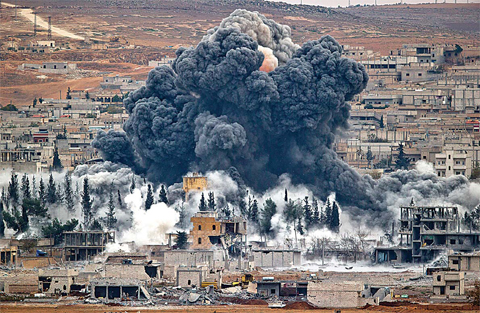BUENOS AIRES: Thousands of Argentines took to the streets of Buenos Aires on Wednesday, clashing with police as they protested a decree of sweeping economic reform and deregulation published by President Javier Milei.
Marching at the behest of labor unions, the protesters demanded the courts intervene to invalidate the mega-decree they say would carve away at worker and consumer protections.
Congress is sitting in an extraordinary session this week, at the request of ultra-libertarian Milei—in office since December 10 -- to consider the plan. He sent a package of bills to give effect to his decree to parliament on Wednesday. The decree would change or scrap more than 350 economic regulations in a country accustomed to heavy government intervention in the market.
Among others, it abolishes a price ceiling on rent, eliminates some worker protections and scraps laws shielding consumers from abusive price increases at a time annual inflation exceeds 160 percent and the poverty level has surpassed 40 percent. A number of civic groups on Saturday filed a court motion to have the decree declared unconstitutional. On Wednesday, protesters waved Argentine flags and placards reading: “The homeland is not for sale.”
“We do not question the legitimacy of President Milei, but we want him to respect the division of powers. Workers need to defend their rights when there is an unconstitutionality,” construction union leader Gerardo Martinez told reporters at the march.
After the protest ended, small, scattered groups continued to confront police. Local media said seven people were arrested. Milei’s “chainsaw plan” to cut state spending has triggered a series of street protests against the government. Other aspects of the decree include an end to automatic pension increases, restrictions on the right to strike, easing away from price caps for private health services, and the privatization of some public companies.
It also terminates some 7,000 civil service contracts. Unless both houses of Congress scrap the plan in its entirety, the decree will enter into force on Friday.
Milei’s far-right party, Freedom Advances, has 40 seats in the 257-member lower house of parliament and seven senators out of 72. “The decree is destructive of all labor rights,” said 45-year-old teacher Martin Lucero, who took part in the protest. “The Argentine people chose Milei as president of the nation, not as emperor,” he added. The 53-year-old self-described “anarcho-capitalist” has targeted spending cuts equivalent to five percent of gross domestic product.
Shortly after taking office, his administration devalued Argentina’s peso by more than 50 percent, and announced huge cuts in generous state subsidies of fuel and transport from January. Milei has also announced a halt to all new public construction projects and a year-long suspension of state advertising. — AFP











